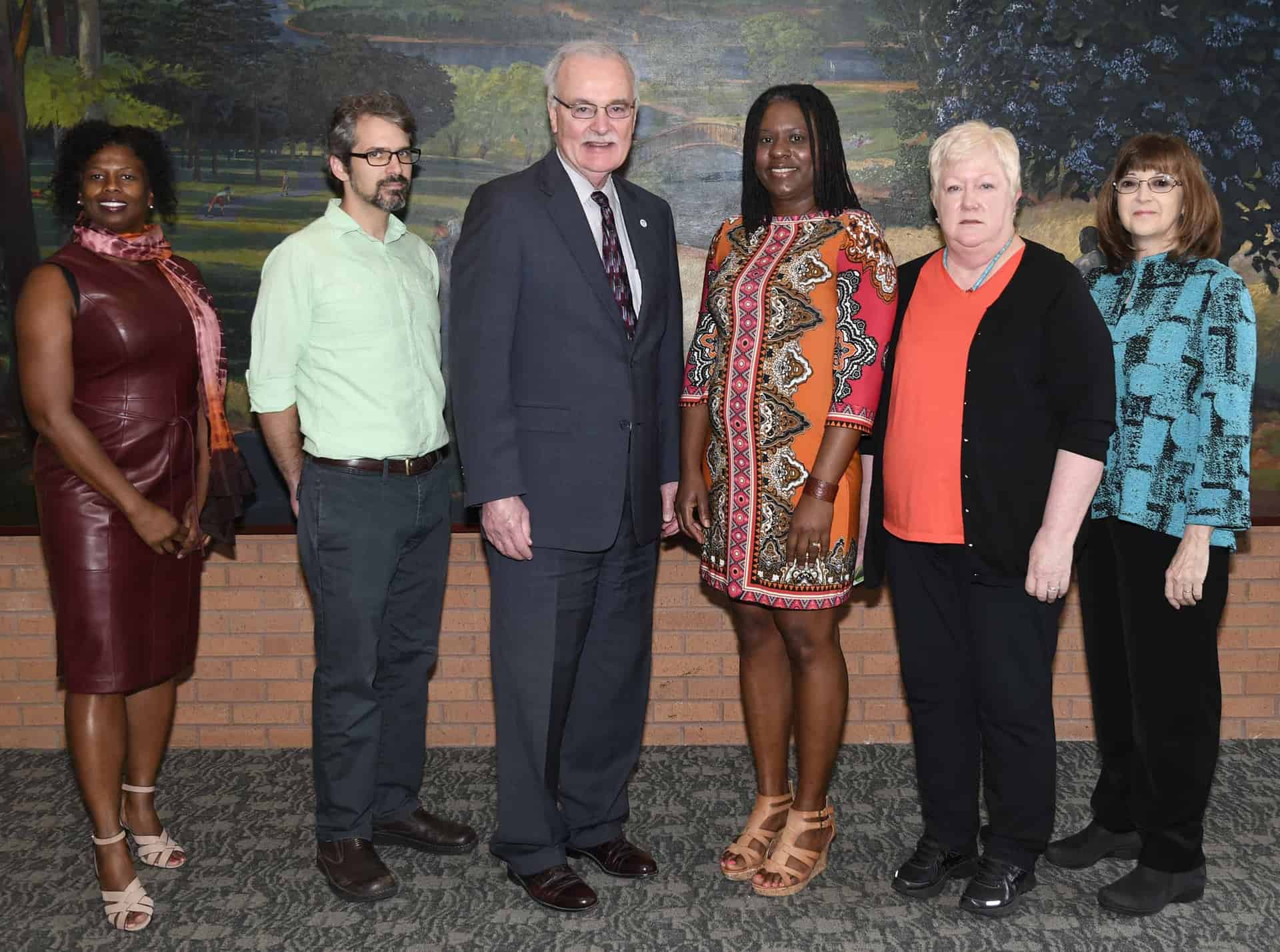UAMS Arkansas Center for Health Disparities Awarded $7 Million for Minority Health Disparities Research
| LITTLE ROCK — The Arkansas Center for Health Disparities at the University of Arkansas for Medical Sciences (UAMS) has been awarded a $7 million National Institutes of Health (NIH) grant for research on minority health disparities, including reducing tobacco smoke exposure among children in the Delta and studying HIV prevention among incarcerated African-Americans.
The grant was awarded by the NIH’s National Institute on Minority Health and Health Disparities.
The center, housed in the UAMS Fay W. Boozman College of Public Health, is one of 12 specialized research centers funded in the country to conduct multidisciplinary research, research training, and community engagement activities to improve minority health and reduce health disparities. The grant will support pilot studies to help junior faculty compete for larger grants and train the next generations of researchers.
“I am grateful for the hard work put in by faculty and staff,” said Jim Raczynski, Ph.D., co-principal investigator and dean of the COPH. “With this funding for a third consecutive five-year period, the center will expand its research and mentoring programs to develop more effective ways of improving the health of minority Arkansans.”
The center will use funding to implement two new research projects. Both will use community health workers to help reduce chronic disease risk factors.
One project will concentrate on the Arkansas Delta to reduce tobacco smoke exposure among children and their caregivers and help African-American women quit smoking.
This is being led by Pebbles Fagan, Ph.D., professor and director of the Center for the Study of Tobacco in the College of Public Health; Katherine Donald, executive director of the non-profit Coalition for a Tobacco Free Arkansas; and Naomi Cottoms, executive director of the Tri-County Rural Health Network in Helena-West Helena.
The other project — led by Nick Zaller, Ph.D., associate professor in the College of Public Health and director of the Office of Global Health at UAMS; Alex Marshall, assistant professor in the College of Public Health; and Melissa Zielinski, NIH postdoctoral fellow with the UAMS Psychiatric Research Institute — will look at HIV prevention and risk among incarcerated African-Americans.
“In addition to this new focus, there are numerous faculty who will serve as co-investigators on this grant,” said Carol Cornell, Ph.D., co-principal investigator and chair of the Health Behavior and Health Education Department in the College of Public Health. “This will provide a new opportunity for multidisciplinary collaborative team science.”
Other funding will be used to maintain three core units:
- Administrative Core — to provide overall coordination and management of center activities
- Investigator Development Core — to develop a pilot project program for early-stage investigators and to provide mentorship and guidance
- Community Engagement and Dissemination Core—to expand and facilitate equitable, sustainable, collaborative relationships with community and other stakeholders and to coordinate dissemination of research findings to diverse audiences.
“We are excited to be able to once again fund pilot studies through the investigator development core, as well as continue our community outreach,” said Cornell. “This will allow junior investigators to collect preliminary data in multiple areas relevant to health disparities.”
The center will continue its mission of developing research to improve access to quality prevention and health care programs for racial and ethnic minorities with a goal of reducing health disparities.
“Arkansas has some of the greatest racial and ethnic health disparities in the country, but research can provide many of the answers for the best way to lower the disproportional burden of disease borne by our minority communities,” said Raczynski.
The center thrives on its success of developing multidisciplinary, multilevel research and maintaining strong, collaborative work over the years with partners that help carry out its mission. These include: the UAMS Fay W. Boozman College of Public Health, the UAMS Office of Community-Based Public Health, the UAMS Racial and Ethnic Health Disparities Taskforce, the Arkansas Department of Health, the Arkansas Minority Health Commission, Arkansas Historically Black Colleges and Universities, the El Instituto Nacional de Salud Publica/Escuela de Salud Publica de Mexico, the Engaged Institutions Initiative, the University of Alabama at Birmingham Center for Health Promotion, the Coalition for a Tobacco Free Arkansas, and the Tri-County Rural Health Network.
UAMS is the state’s only health sciences university, with colleges of Medicine, Nursing, Pharmacy, Health Professions and Public Health; a graduate school; a hospital; a main campus in Little Rock; a Northwest Arkansas regional campus in Fayetteville; a statewide network of regional campuses; and eight institutes: the Winthrop P. Rockefeller Cancer Institute, Jackson T. Stephens Spine & Neurosciences Institute, Harvey & Bernice Jones Eye Institute, Psychiatric Research Institute, Donald W. Reynolds Institute on Aging, Translational Research Institute, Institute for Digital Health & Innovation and the Institute for Community Health Innovation. UAMS includes UAMS Health, a statewide health system that encompasses all of UAMS’ clinical enterprise. UAMS is the only adult Level 1 trauma center in the state. UAMS has 3,275 students, 890 medical residents and fellows, and five dental residents. It is the state’s largest public employer with more than 12,000 employees, including 1,200 physicians who provide care to patients at UAMS, its regional campuses, Arkansas Children’s, the VA Medical Center and Baptist Health. Visit www.uams.edu or uamshealth.com. Find us on Facebook, X (formerly Twitter), YouTube or Instagram.###
